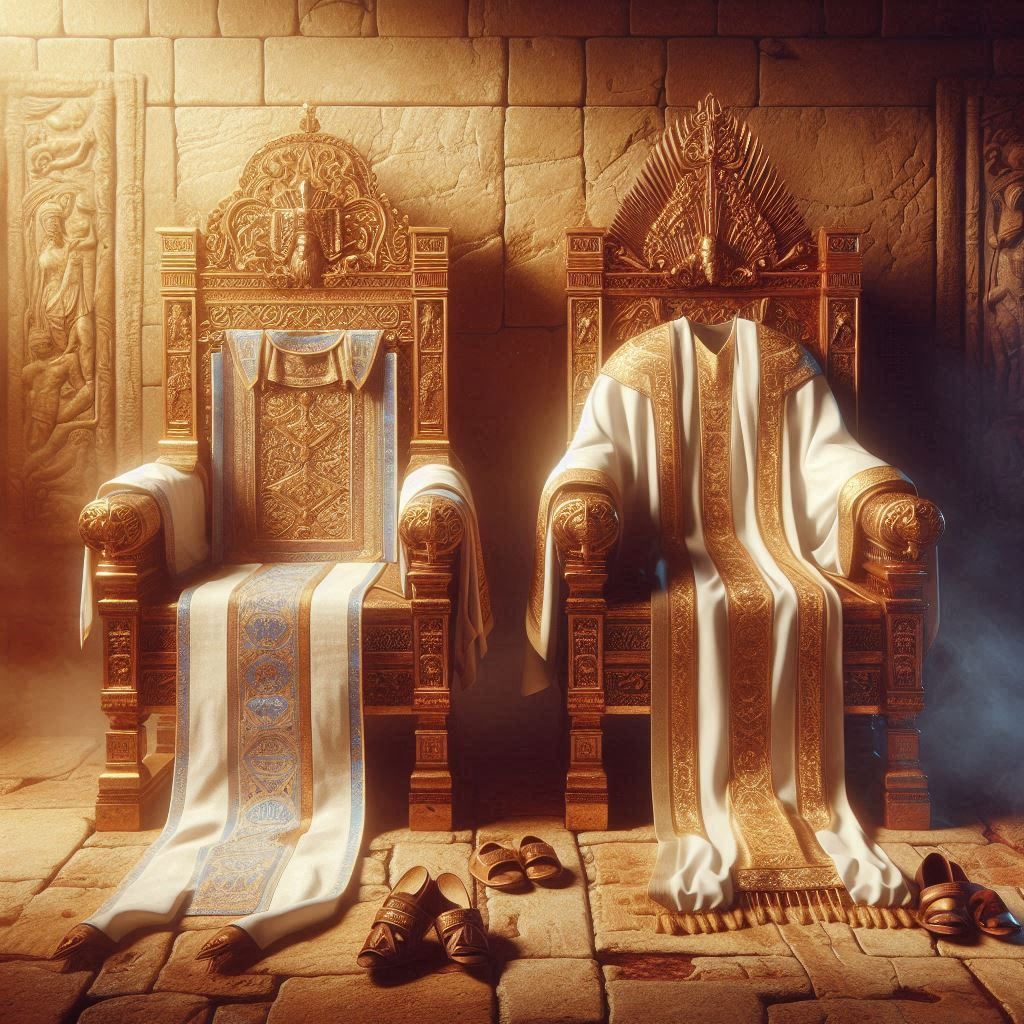Show Notes: Did John Baptize Yeshua into the Melchizedekian Priestly Order-Part 5 of our Melchizedek SeriesEpisode Title: Did John Baptize Yeshua into the Melchizedekian Priestly Order-Part 5 of our Melchizedek Series
Episode Description: In this episode, we explore the intriguing question of whether John the Baptist baptized Yeshua into the Melchizedekian Priestly Order. Join us as we delve into historical, theological, and scriptural insights to uncover the significance of this event. This is Part 5 of our Melchizedek Series, where we continue to examine the profound implications of the Melchizedekian Order in religious history.
Key Topics Covered:
Episode Highlights:
References:
|
Humility-Pride-Remembering-God’s Grace and God’s Faithfulness—Parashah 133
Our Torah Reading: Deuteronomy 9:1-29—Humility-Pride-Remembering-God’s Grace and Faithfulness—Parashah 133 Father’s Faithfulness Stands Despite Our Debased Nature How are we to understand Father’s faithfulness towards us despite our incessant propensity to...
Who and What is Yeshua Messiah-My Personal Perspective on the Person of Yeshua Messiah
Recently, a dear sister discovered this ministry through our website, www.themessianictorahobserver.org. She reached out to me via a couple email messages. And she posed the question: Who or what I believe Yeshua Messiah to be? And she prefaced her question by...
Yeshua-The Bread of Life-Torah Reading-132
Introduction to Parashah 132—Yeshua, the Bread of Life Our Parshah this week, under the 3-year Torah Reading cycle, is found in Deuteronomy 8:1-20. The most prominent verse in the reading is verse 3: “Thou shalt not live by bread alone, but by every Word that...
Blaspheming the Name of God-Part-2 of the Series A Question of One’s Jewishness
Picking-Up Where We Left Off What I want to do this week is to pick-up from where we left off from the last installment of this series within a series which was entitled: "You Are Called a Jew" and move on through verses 19 through 24 in this installment. And...
The Shema-God’s Word Dwelling Within Us-Sabbath Thoughts & Reflections-Parashah 131
Today's Torah Reading Shabbat Shalom beloved of the Most High and sister and brother of the true Faith once delivered. Today's Torah Reading or Parshah is found in Deuteronomy 6:4-7:26; Zechariah 14:1-9; and Mark 12:28-34. But given the content rich nature of this...
Hear O Israel The Statutes and Ordinances Which I Speak-Thoughts and Reflections on Parashah 130-Deuteronomy 5:1-6:3
What Yehovah Expects of His Children This week's Torah Reading (aka parshah), found in Deuteronomy 5:1-6:3, is a reiteration of the 10-Commandments by Moshe to the generation slated to enter the Land of Promise. And along with that iteration comes clarification as to...
Heeding Zophar’s Wisdom About Yehovah
Job: A Story With Many Complexities You know, the story of Job is not by any stretch of the imagination an easy one to work through. Theres just so many complex literary and spiritual textures and concepts woven into the baseline story. The Cepher of Job is in part a...
Can I Get a Witness Up In Here?
A Story of Witness and Commitment to YHVH Picking up from my last blog-post taken from the Cepher of Y’hoshua (aka Joshua), I wish to now turn our attention to chapter 22, verses 10-34. And what we find here in this passage of Holy Writ is an amazing but awesome...
The Great Commitment to Kingdom Living by God’s Elect
My daily Torah studies this morning brought me to the Cepher of Y'hoshua (aka Joshua), chapter 22. By the end of my studies this morning, I was compelled to ask myself, what is the level of commitment I had to walking and living Kingdom. You'll soon see what I mean....
You Are Called a Jew-Part 1 of the Series: A Question of One’s Jewishness
Goal Today we continue our exposition into some of the Apostle Paul's most challenging and hard to understand writings and teachings, having just concluded in our previous post a discussion on the apostle's naming the "gospel" as "my gospel." (I would humbly...

